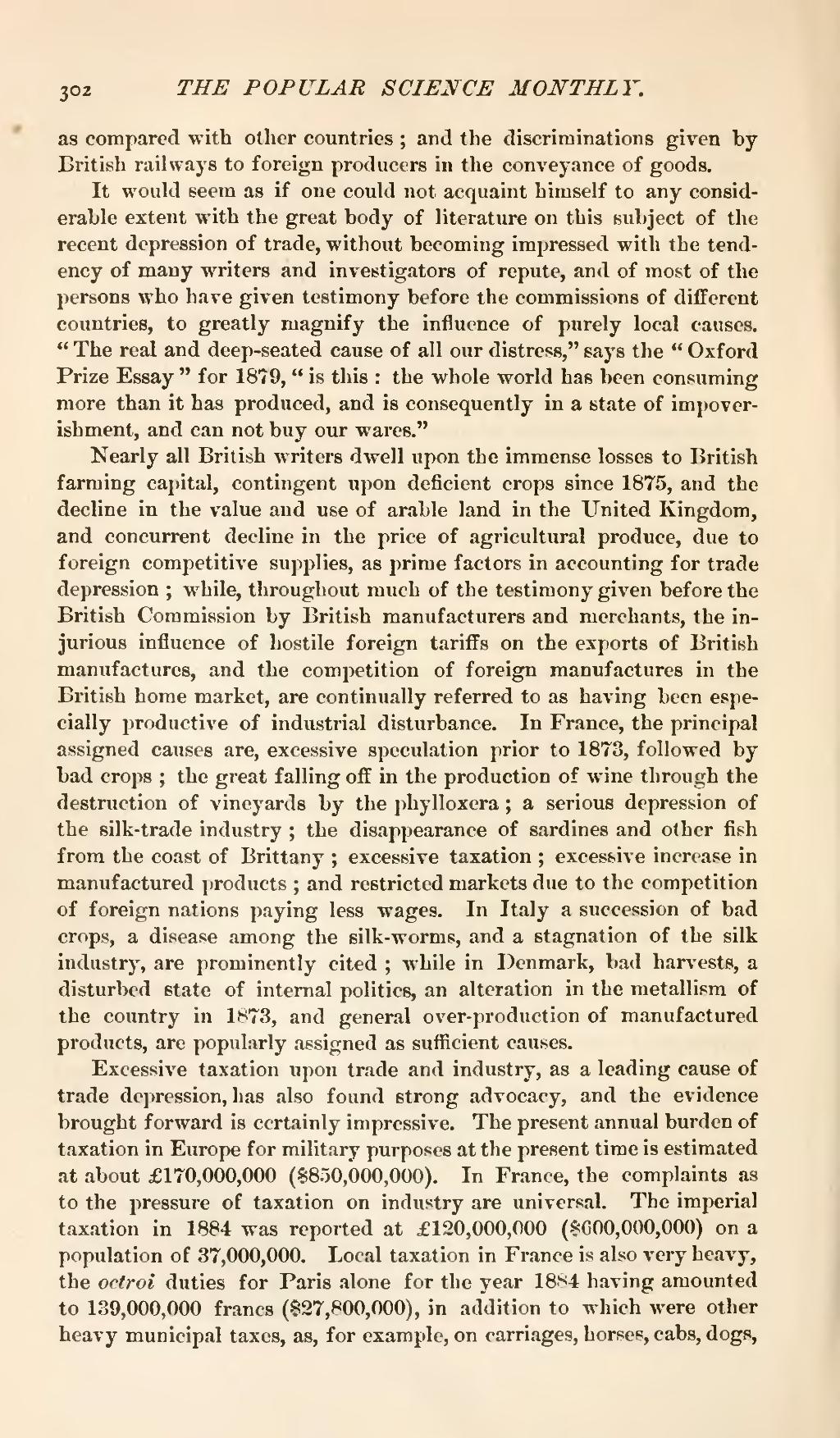as compared with other countries; and the discriminations given by British railways to foreign producers in the conveyance of goods.
It would seem as if one could not acquaint himself to any considerable extent with the great body of literature on this subject of the recent depression of trade, without becoming impressed with the tendency of many writers and investigators of repute, and of most of the persons who have given testimony before the commissions of different countries, to greatly magnify the influence of purely local causes. "The real and deep-seated cause of all our distress," says the "Oxford Prize Essay" for 1879, "is this: the whole world has been consuming more than it has produced, and is consequently in a state of impoverishment, and can not buy our wares."
Nearly all British writers dwell upon the immense losses to British farming capital, contingent upon deficient crops since 1875, and the decline in the value and use of arable land in the United Kingdom, and concurrent decline in the price of agricultural produce, due to foreign competitive supplies, as prime factors in accounting for trade depression; while, throughout much of the testimony given before the British Commission by British manufacturers and merchants, the injurious influence of hostile foreign tariffs on the exports of British manufactures, and the competition of foreign manufactures in the British home market, are continually referred to as having been especially productive of industrial disturbance. In France, the principal assigned causes are, excessive speculation prior to 1878, followed by bad crops; the great falling off in the production of wine through the destruction of vineyards by the phylloxera; a serious depression of the silk-trade industry; the disappearance of sardines and other fish from the coast of Brittany; excessive taxation; excessive increase in manufactured products; and restricted markets due to the competition of foreign nations paying less wages. In Italy a succession of bad crops, a disease among the silk-worms, and a stagnation of the silk industry, are prominently cited; while in Denmark, bad harvests, a disturbed state of internal politics, an alteration in the metallism of the country in 1873, and general over-production of manufactured products, are popularly assigned as sufficient causes.
Excessive taxation upon trade and industry, as a leading cause of trade depression, has also found strong advocacy, and the evidence brought forward is certainly impressive. The present annual burden of taxation in Europe for military purposes at the present time is estimated at about £170,000,000 ($850,000,000). In France, the complaints as to the pressure of taxation on industry are universal. The imperial taxation in 1884 was reported at £120,000,000 ($600,000,000) on a population of 37,000,000. Local taxation in France is also very heavy, the octroi duties for Paris alone for the year 1884 having amounted to 139,000,000 francs ($27,800,000), in addition to which were other heavy municipal taxes, as, for example, on carriages, horses, cabs, dogs,
